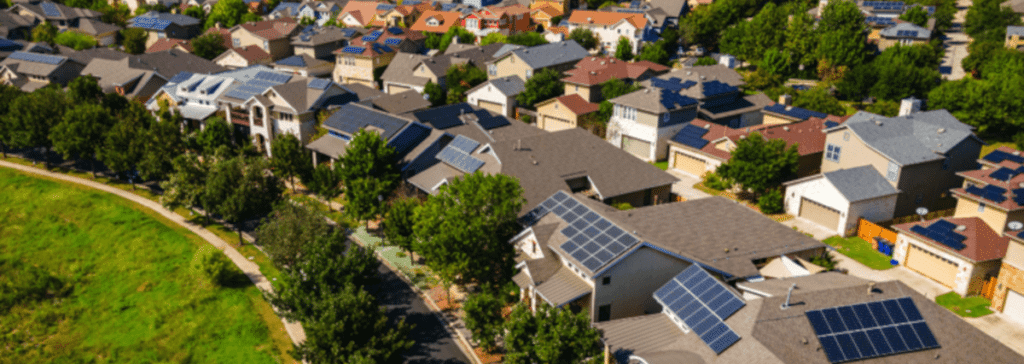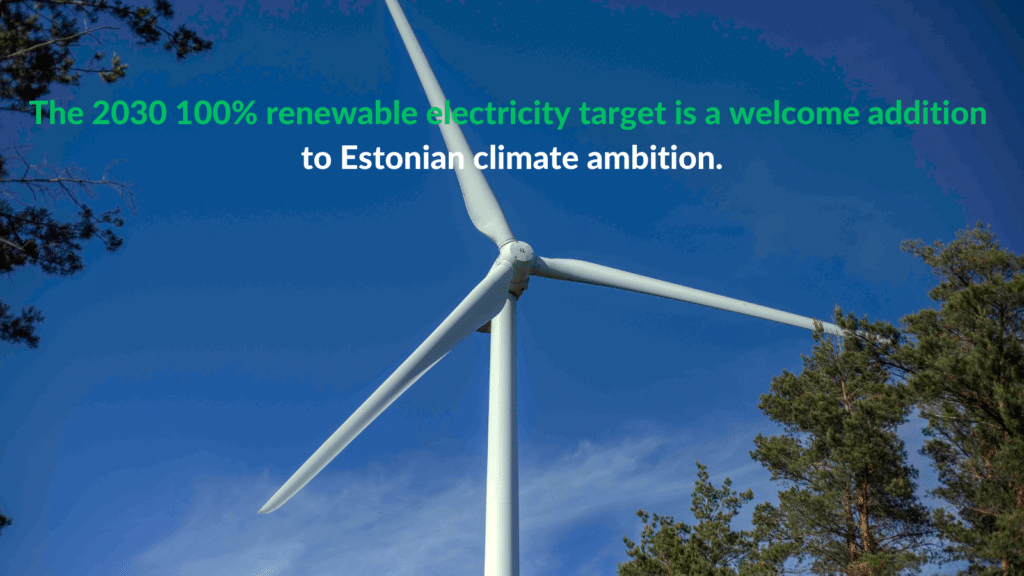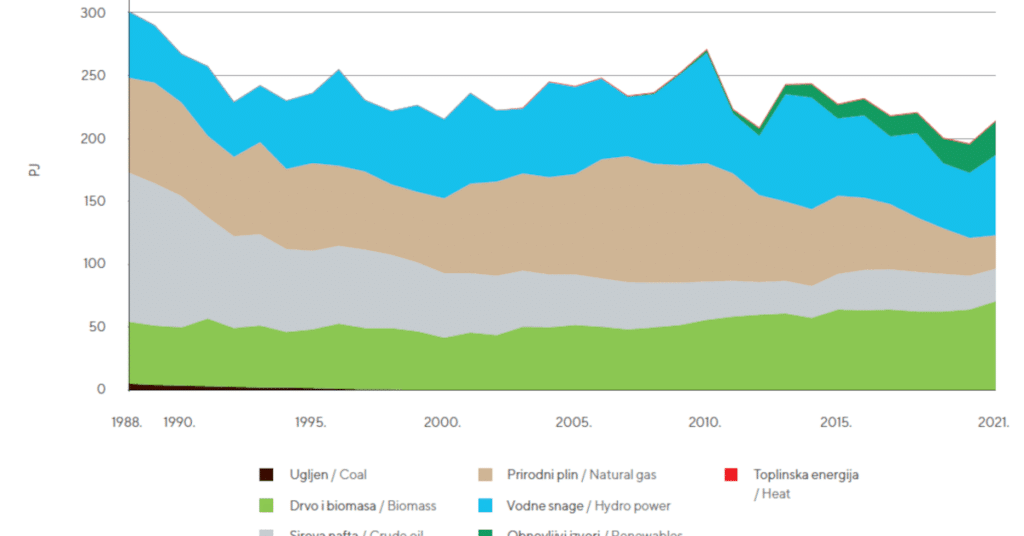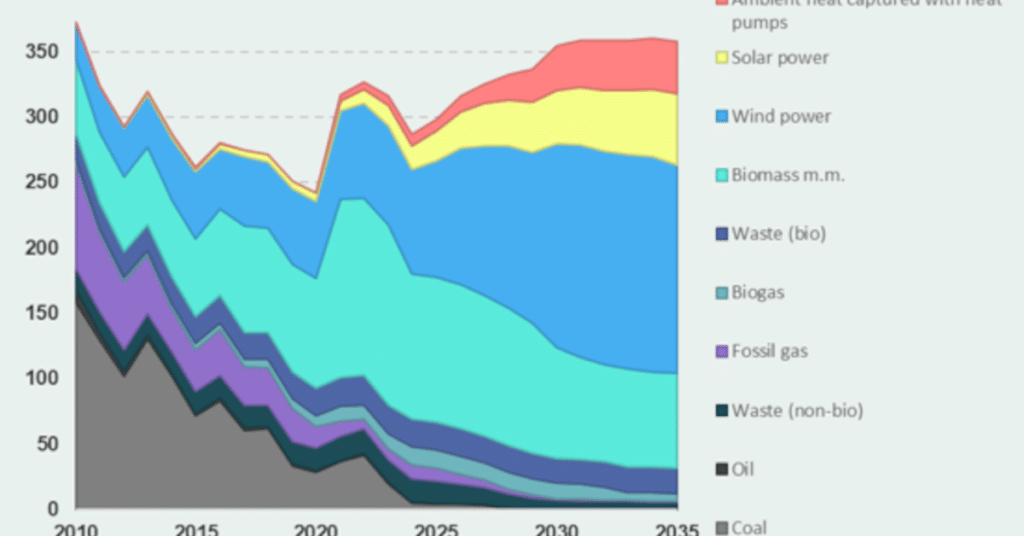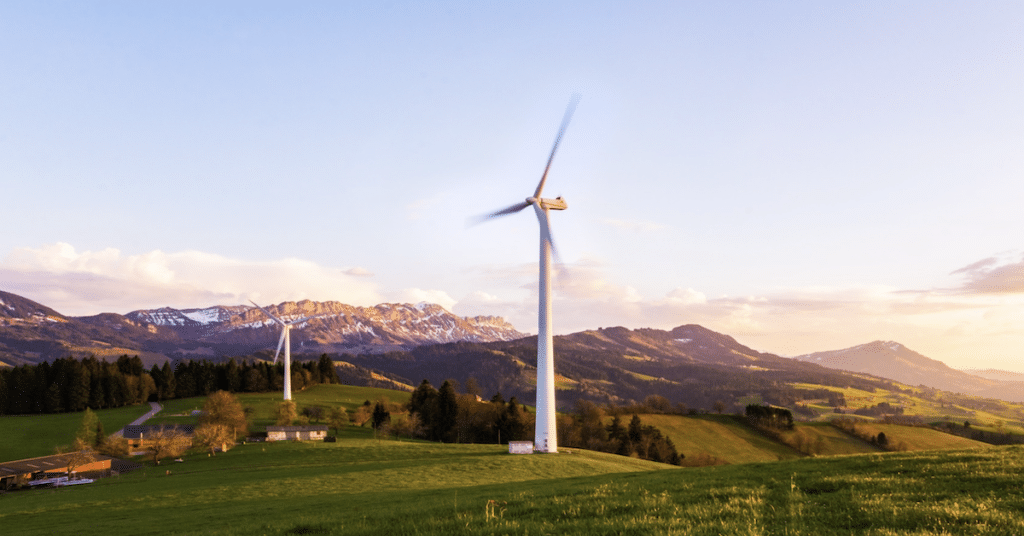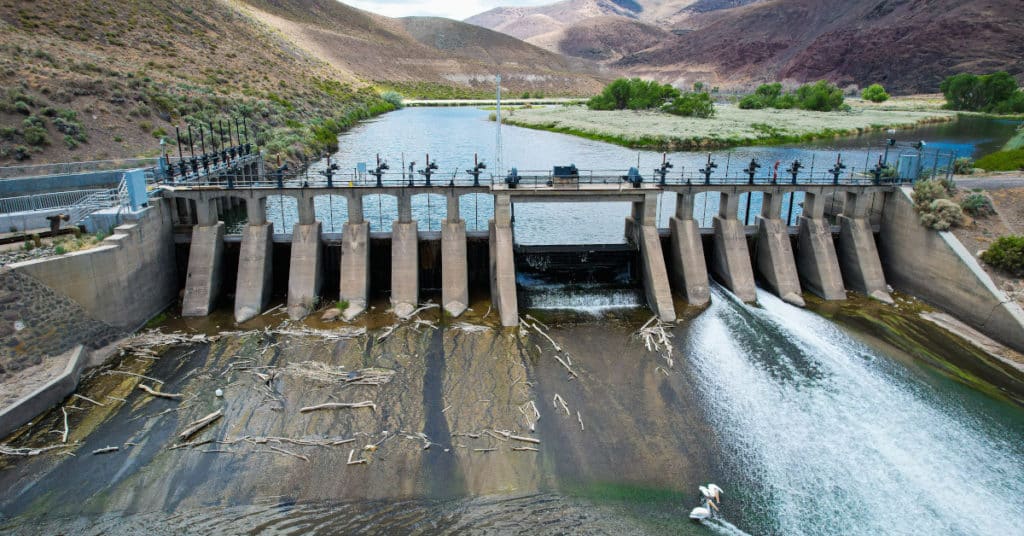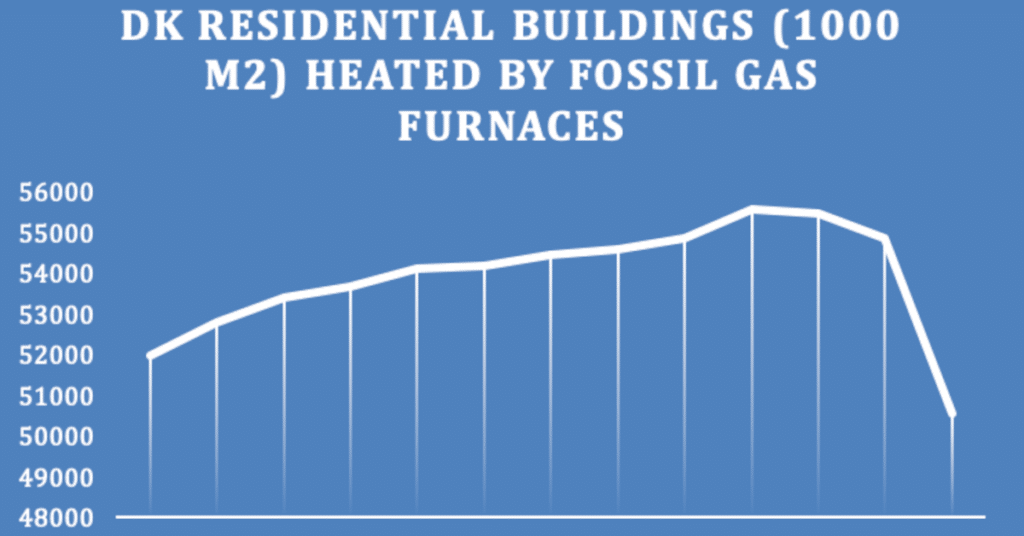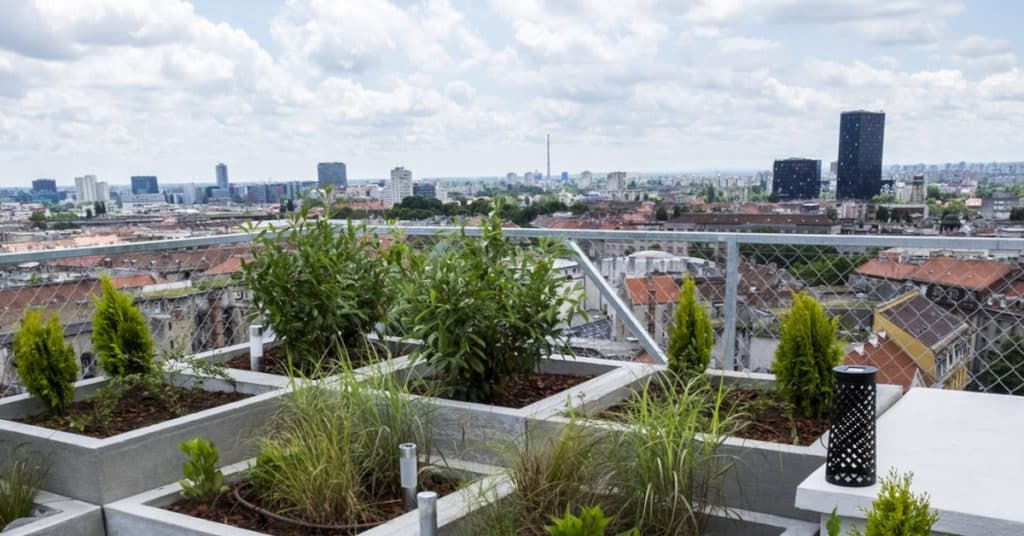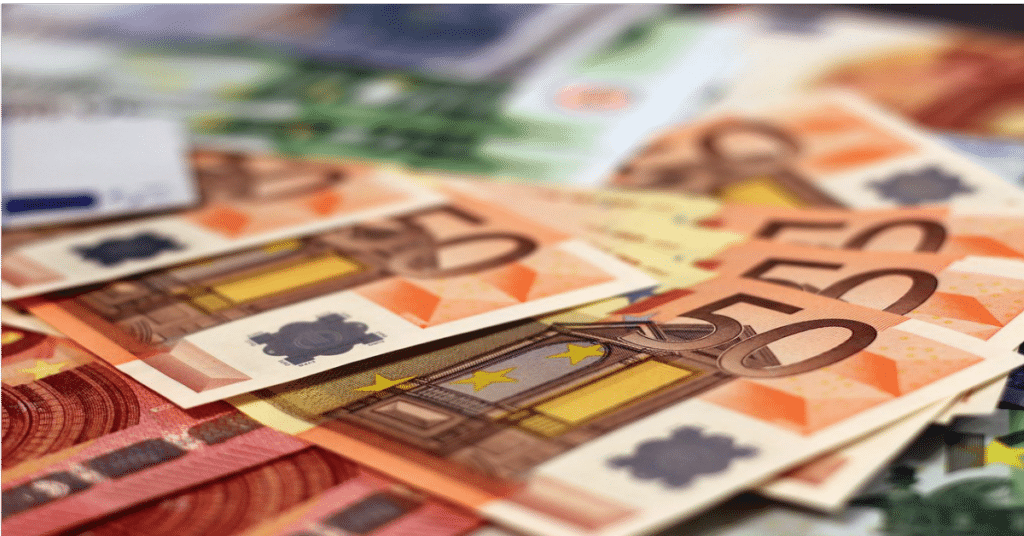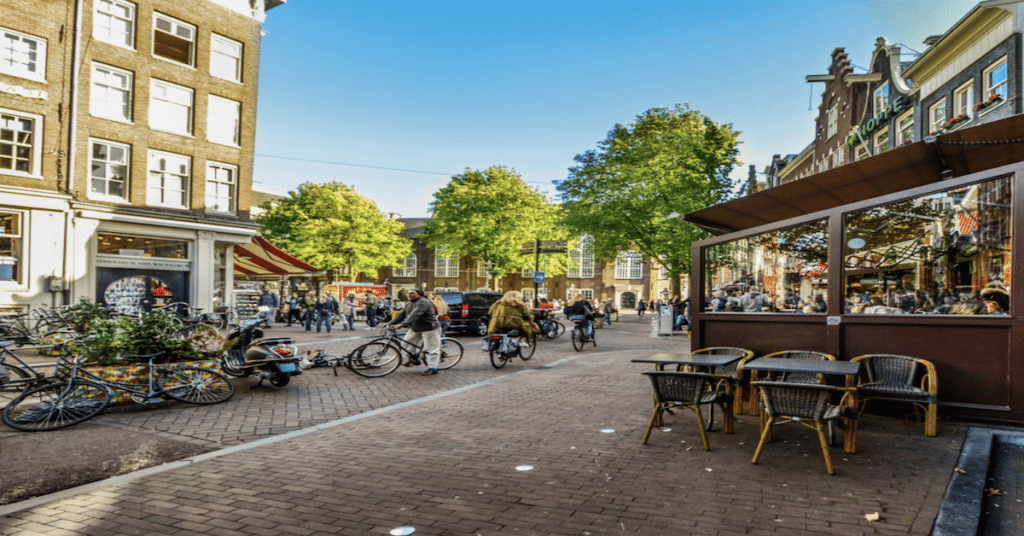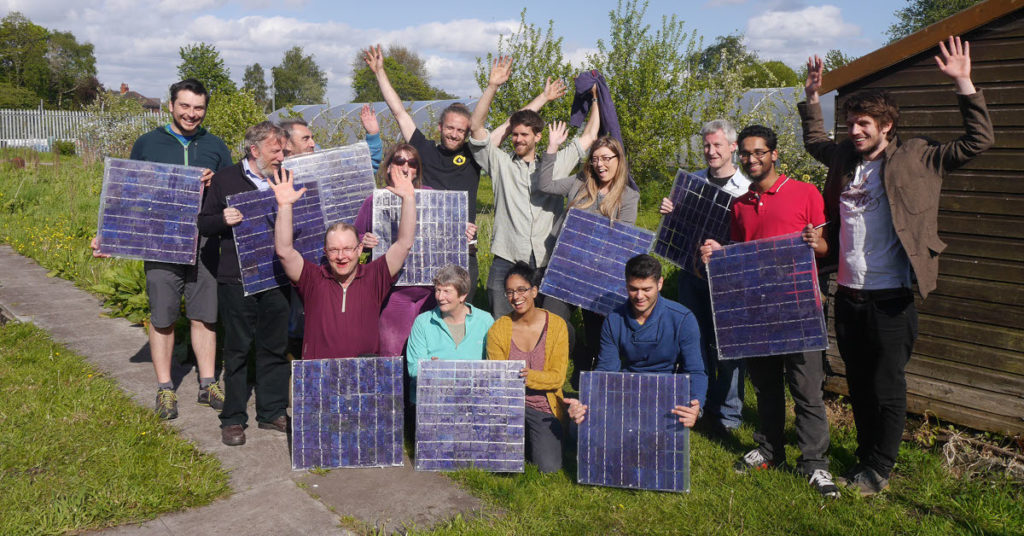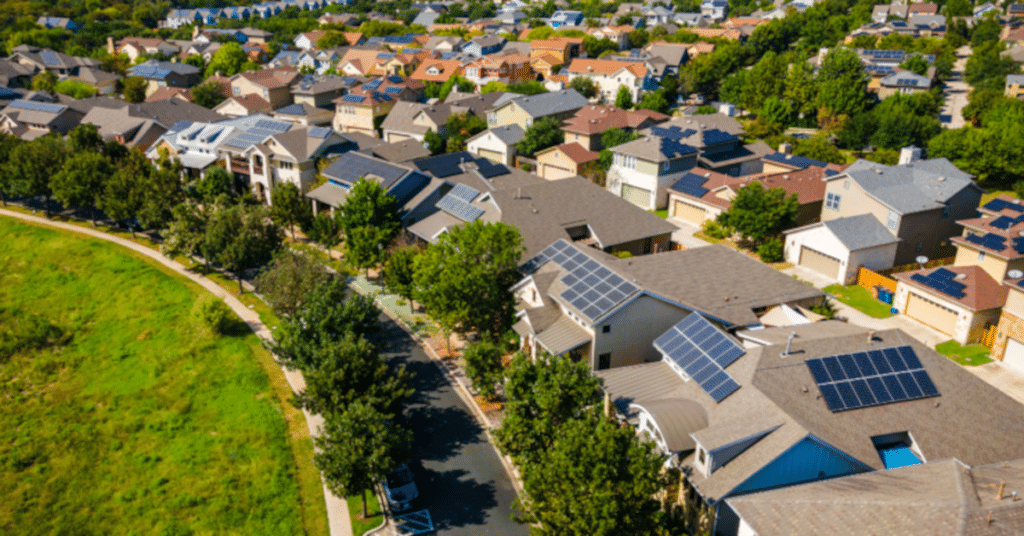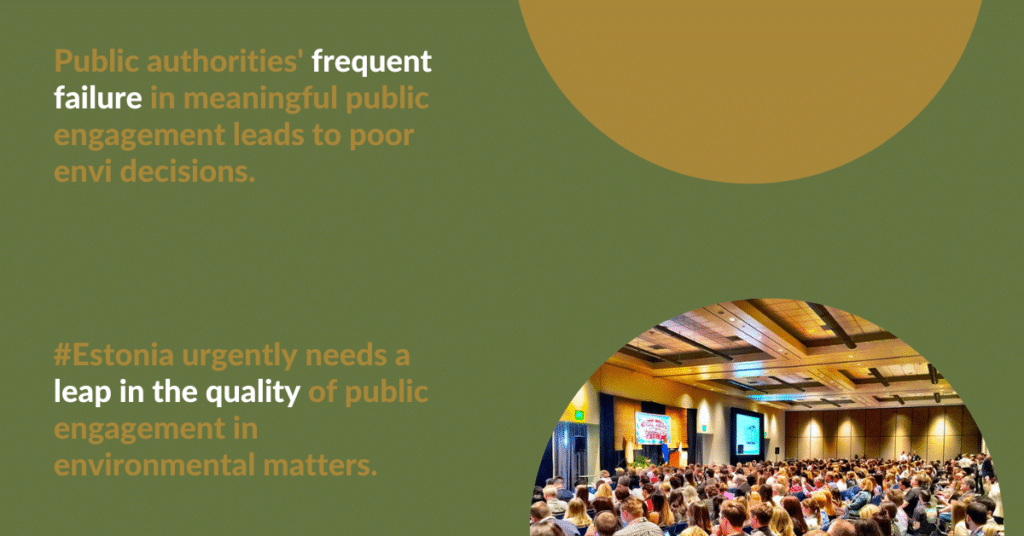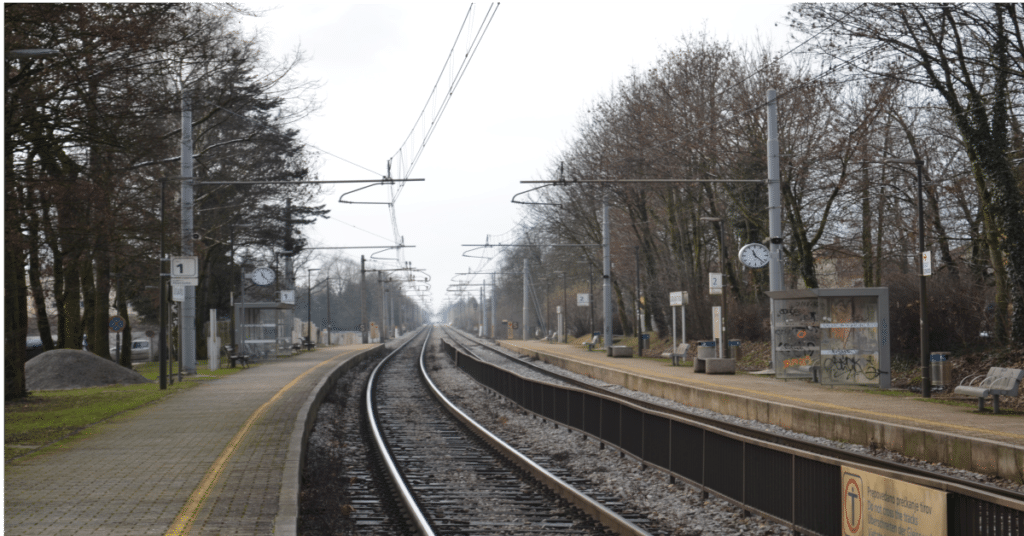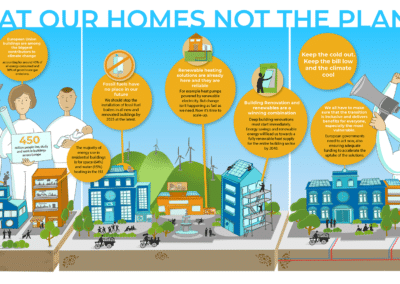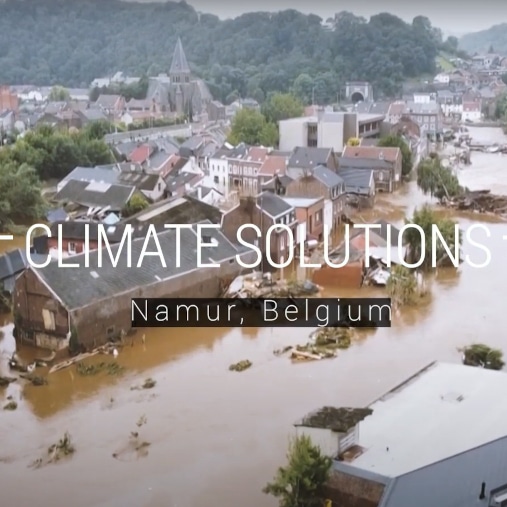

Change is underway, with renewables flourishing and demand for fossil gas declining, while coal has no future in sight. National Energy and Climate Plans (NECPs) are the right opportunity to push the fast-forward button and accelerate climate action. Inspiring stories from all over Europe showcase how the just transition can be accelerated, as the deadline for Member States to come up with their new draft NECPs – end of June 2023 – is swiftly approaching.
Climate and environment NGOs based in 12 European countries gathered almost one hundred concrete examples of climate action measures implemented on the ground. These should inspire all governments and put Europe on track for achieving a safe and stable climate and to ensure we all harvest the benefits of a sustainable life.
By examining the stories of countries taking action, such as promoting clean public transport, advancing renewable energy deployment, greening cities, shortening food supply chains, and combating energy poverty, we can find inspiration. We should urge our governments to include these effective measures in their NECPs and exclude those that civil society deems problematic.
Renewables
Countries are required to communicate their contribution to the binding EU renewables target for 2030 in their NECPs, and they should go beyond the bare minimum.

A prosperous and sustainable energy future, fully based on renewable energy is possible, by taking bold actions and boosting the clean energy transition in NECPs. The examples below show the transition is already underway, but we must scale up significantly.
Boost decentralised solar on rooftops and energy communities
The targets for decentralised solar in the NECP are far below the existing technical and economic potential for this form of energy production...
Renewables gain ground in Estonia
The 2030 100% renewable electricity target is a welcome addition to Estonian climate ambition and amongst the right objectives to elaborate a coherent revised NECP..
Croatia expands its renewable energy
Primary energy production from renewable sources in comparison with the year 2020 has risen by 16,6% in 2021 as a result of continuous..
More than 2.5 GW of new solar power for self-consumption was installed in 2022
Although far behind other European countries, renewable prosumerism has finally taken-off in Spain and for the second consecutive year doubles the figures for solar installed power in homes...
Read moreA Renewable Energy Contact Point for the uptake of renewable energy in Slovenia
A Renewable Energy Contact Point has been established to provide information on renewable energy sources and to promote investments in renewable energy in Slovenia. The contact point guides investors...
Read moreRenewable energy investments are expanding
Investments in renewable energy are expanding. Belgium is a leader in offshore wind, and the residential installation rate in photovoltaics has increased due to the effects of the energy crisis. However, especially in relation..
Read moreTime for renewables rollout
Germany is planning a considerable rollout of renewable energy, but is still lacking measures on community energy. The updated German NECP needs to incorporate energy communities in...
Read moreCeasing restrictions on solar and wind power plants
One very promising element of the 2019 Hungarian NECP is the increase of renewable energy use. The now planned elimination of the previously introduced restrictions...
Read morePoland reaches 50GW of renewables in 2030
Poland’s newest plans include over 50 GW of renewable power to be deployed by 2030. The updated NECP should reflect and include these new plans, striving for...
Read more
The wrong investments, lack of capacity or false policy decisions can hinder the needed uptake of renewable energy. Attention should be paid to the existing shortcomings such as the lack of engineering capacity, and to the potential effect on nature.
Biomass is not transition
Denmark’s unsustainable biomass consumption and biomass subsidies continue to increase and accounting rules hide actual emissions...
Lacking territorial engineering for developing renewable energies
Renewable energy projects are mostly developed in rural areas, where engineering capacity to organize and monitor their development is scarce. Yet the new law on accelerating the deployment of...
There should be no place for new large hydropower plants in Slovenian NECP
Although the planned new hydropower projects have a significant negative impact on the environment, the current NECP and some of the scenarios in the draft revised NECP...
Massive renewable deployment clashes with local communities and nature conservation
Although the deployment of renewables in Spain has been successful in recent years, the implementation has been mostly based on large installations, with general lack of social consensus and...
Read moreSustainable Mobility
A strong NECP should include a transport target, and policies and measures to tackle this sector that is so far lagging behind in emission reduction.

Without additional and timely action, emissions from the transport sector will continue growing in Europe. By supporting modal switch and accelerating the uptake of public transport and zero-emission vehicles (as shown by examples) countries could swifty decarbonise and improve air quiality.
Transform cities to reduce road traffic and improve air quality
Cities, which concentrate the majority of the population and are centers of consumption of natural resources and emission of greenhouse gases, must do their part to reduce travel and the use of private vehicles...
Poland to get fully zero-emission public bus fleet in 2030
The Polish government announced a plan to reach a zero-emission public bus fleet in 2030. Purchase of new zero emission buses is going to be obligatory for public operators...
Prioritise the railway connection between Lisbon and Madrid
The national railway plan does not emphasise enough the need to connect Lisbon and Madrid by rail in under three hours. This should be a priority in the upcoming...
Read moreUpgrade the public transport ticketing system
Revolutionary new system should integrate ticketing and on-demand shared transportation in Portugal, paving the way for a more efficient and eco-friendly future...
Read moreShared electric transport to grow even more with public support
Shared electric mobility is boosting with almost no public support, if institutions join forces with private investors even more citizens would will get out of their fossil- fuel-runned-vehicles..
Read moreTax reform made electric cars mainstream
For years EV have constituted only a single digit percentage of the annual new car purchases in Denmark. This was partly due to uncertainty about how EV and EV-electricity...
Read moreIntroducing a flight tax
Flight tax - the first step towards putting a real carbon price on air transport?
Read more
Between 2013 and 2019 transport emissions were constantly on the rise in Europe. Road transport remains the major headache across Europe and the progress to decarbonise is too slow, this sector needs a lot more attention and careful planning in NECPs.
Germany is not on track with its transport objectives
Germany is lagging behind in reaching transport related targets, it shall focus on rail transport and to cut counterproductive subsidies especially in view of its NECP revision...
Increasing weight of passenger vehicles
The explosion in sales of SUVs, both internal combustion and electric, risks dooming the transition of the automotive sector. It is urgent to counter this trend, which is incompatible..
A well designed national cycling plan awaits to be realised
Beneficial for municipalities and citizens - cycling initiatives are hindered due to national level undecidedness...
Public transport policy not on track with pledges
Flanders promised a reduction in vehicle kilometres by 2030. This requires a strong boost in public transport, along with other policies. The benefits would be enormous, yet there has been more talk than walk..
Read moreNo measures to reduce car traffic
The government’s slogan: Hungarians by car!
Read moreAn effective ecological transition in the transport sector must focus on electrification
In Spain, road transport alone accounts for 27.6% of the total GHG emissions. Advanced biofuels emerge as an alternative to decarbonise the sector, an inefficient solution in monetary...
Read moreBuildings
The buildings sector holds considerable potential to lower emissions, and NECPs should include detailed measures to address it.

The integration of renewable heating systems, energy savings and efficiency improvements in dwellings have a huge potential to alleviate the effects of energy poverty, as well as greater resilience to fossil fuel price rises. The momentum to renovate buildings is already high in some of the countries.
The renovation marathon is gaining momentum in Estonia
From Soviet-era relics to energy-efficient homes: large-scale building reconstruction is needed in Estonia and the NECP revision is an opportunity to set the right path in this direction..
The EU Recovery Fund to be a great support for a deep building renovation wave
Spain, where half of buildings are over 40 years old, receives different types of aid for building renovation; mainly aimed at improving energy efficiency, accessibility or habitability, depending..

Heating and cooling must be renewable, accessible, efficient, and affordable for all. Governments cannot ignore this, and must put enough attention and support behind building decarbonisation policies in NECPs.
Renovation policy falls short to be a real breakthrough
Flanders introduced a norm demanding the renovation of buildings at the point of transfer. This was an important breakthrough in principle. However, the design of the norm lacked ambition..
Low energy performance of buildings ignored
Although Hungarian NECP (2019) emphasizes the importance of energy renovation of buildings, progress is very slow..
Greening Cities
Who doesn’t want to live in a green city with healthy air, good public transport, safe biking, reduced noise and congestion? NECPs should induce local climate action.

We already see positive changes where cities are provided with funds to target e.g. waste management, plastic reduction, urban planning and biodiversity, air quality and health. See below some good initiatives from Spain and Croatia.
Greening cities initiatives are growing in Spain for different strategic goals
Cities are at the closest level of government to citizens and have key sectoral competences that should strongly contribute to national mitigation and adaptation strategies. Several Spanish cities...
Croatian cities get support for greening and adaptation
The Croatian national ministry has introduced multiple calls and initiatives to support cities and municipalities in adopting nature-based solutions and mitigating the effects of climate change...
Transform cities to reduce road traffic and improve air quality
Cities, which concentrate the majority of the population and are centers of consumption of natural resources and emission of greenhouse gases, must do their part to reduce travel and the use of private vehicles...

Massive constructions and urban sprawl go against a sustainable and livable life in cities.The revised NECPs should provide a framework to make our cities greener, healthier.
Tax benefits on new constructions incentivizing urban sprawl
A reduced, 5% VAT rate on new housing constructions in Hungary favours new construction to retrofits of old buildings, meaning higher environmental and climate impact, and...
Agriculture
Agricultural greenhouse gas emissions changed very little at the EU level in the last 15 years. Additional measures are needed urgently to decarbonise this sector.

We have gathered some good examples of tackling agricultural emissions: incorporating agriculture in the revised NECPS as France did, and including measures covering also livestock and food supply chains (Portugal) is the way to go.
Grazing as an objective of the NECP
Grazing is key to achieve emissions reduction objectives in the NECP but concrete implementation measures are still needed.
Increase short food supply chains
Short agri-food chains and circular economy, adapted to the local context, bringing farmers and local communities closer together through cooperative organisation, food sovereignty and the widespread adoption...

Measures connected to sustainable farming and the agricultural sector are generally lacking in the NECPs and/or in alternatives falling short behind LULUCF and nature protection objectives.
Improve measures to decarbonise the livestock sector
This measure represents continue to support the intensive livestock farming with incentives to make it more efficient, instead of questioning it’s principle and moving towards more sustainable farming systems...
The agricultural sector is key both as emitter sector and potential carbon sink
The agricultural sector is the fourth most emitting sector in Spain, representing 13.4% of the total gross emissions in 2021, a not insignificant figure for a sector with little used sink...
Lack of climate policies in agriculture
The agricultural sector has become the third major non-ETS emitter of GHG emissions in Flanders. The further reduction of methane and nitrous oxide, which together account for 70% of total agricultural emissions...
Current measures fall short to reach Estonia’s LULUCF target
In order to achieve its climate targets, Estonia needs to introduce additional measures for emissions reductions in the LULUCF sector...
Read moreMoney for change
In their NECPs, countries must assess how much (public and private) money is needed to implement the transformative policies and measures.

Funds and taxes have a powerful impact on policies and trends at the national level. Public investments planned under the NECPs – coming from either EU funds or national resources should be directed exclusively toward transformative, climate-proof measures. Taxation policy adjustments can also have a positive impact, as seen in some of the examples below.
100bn EUR for the railway sector
A 100 billion EUR investment plan for the railway sector by 2040 was launched in February 2023 by the French government. These investments should now contribute to reducing greenhouse..
Subsidy reforms towards a more coherent industrial policy
Many billions in government subsidies go to industrial companies. The Flemish government has taken some modest but nevertheless important steps in reforming this support. Various subsidies are now only accessible for..
Carbon Dioxide tax on industry
Industrial emissions have so far not delivered much reduction. Mostly because there were no economic incentives for industry to deliver reductions..

No money should flow towards fossil fuels or any other false solution that would generate stranded assets and lock-in effects. Countries are also required to report on their fossil fuel subsidies and plans to phase them out in their NECPs.
Yearly endowment fund for local climate policies
Local authorities should double their investments to reach the national emissions goal, however the current yearly endowment system does not offer enough clarity on their ability to invest. A...
Inadequate financial support hinders the take-up of community energy projects in Slovenia
The lack of steady financial support is hindering take-up of community energy projects. Slovenia needs to recognise the crucial role of community energy projects to tackle multiple...
Environmentally harmful subsidies remain high
Belgium continues to dole out large amounts of environmentally harmful subsidies. There have been some steps towards reform, but they remain insufficient. Thorough fiscal and energy-taxation..
Croatia overlooks research, innovation, and competitiveness
Despite the existence of six defined measures to support research, innovation, and competitiveness in Croatia, only one of them has been partially implemented. There is a severe lack...
Read morePriority investments hinder public participation in Hungary
Thousands of projects are being labelled as priority investments in Hungary, with shorter administrative deadlines and less stringent criteria on disclosing public information, making public participation especially difficult...
Read moreCommunity energy
Member states should boost the build up of renewables-based energy communities in response to the current energy crisis and looming climate emergency.

Energy communities put power in the hands of people. Renewable based, decentralised energy systems are a key element in mitigating energy insecurity and effects of rising prices
Boost decentralised solar on rooftops and energy communities
The targets for decentralised solar in the NECP are far below the existing technical and economic potential for this form of energy production...

Many citizens and communities across Europe are looking towards establishing their own energy community or energy cooperative, but the process is hindered by bureaucracy and lack of support.
Collective energy models are lagging behind by bureaucracy and lack of knowledge
Despite the latest advances in the regulation, collective self-consumption has not yet got rid of long procedures and complicated bureaucracy that are leading to important delays and social demotivation...
Poland holds back community energy development
The Polish government strictly limits access to community energy. This should be urgently addressed and improved in the updated NECP...
Energy communities low on the agenda
Energy communities (community energy) as bottom-up key solutions in achieving energy independence based on renewables...
Energy poverty
By strong NECPs millions of people can be lifted out of energy poverty throughout the EU while mitigating the climate crisis.

Considerable measures will be implemented to tackle energy poverty in some member states such as Bulgaria (through the Energy Poverty Mechanism), Portugal (through upgrading the Energy Efficiency Vouchers) and Slovenia (through the Energy poverty reduction scheme).
Upgrade energy efficiency vouchers
The "Energy Efficiency Vouchers" is a positive measure to combat energy poverty, but should be improved at various levels, such as increasing the amount, enlarging the scale of intervention...
Planned measures to reduce energy poverty in Slovenia
Slovenia is taking a step in the right direction with the proposed establishment of an energy poverty reduction scheme in the draft of revised NECP and the implementation...
It’s time for concrete measures under the Energy Poverty Mechanism
100 thousand renovations of energy-poor households is a feasible target for the initial Energy poverty Mechanism implementation. This firstly to improve the energy efficiency...

Considerable measures will be implemented to tackle energy poverty in some member states such as Bulgaria (through the Energy Poverty Mechanism), Portugal (through upgrading the Energy Efficiency Vouchers) and Slovenia (through the Energy poverty reduction scheme).
No national program exists to address energy poverty in Croatia
Energy poverty affects 30 million people in the most vulnerable households across Europe. To be able to recognize and minimise the effects of this pressuring issue it is...
Just transition
Countries are required to identify the socio-economic impact of their planned measures and should include implications for delivering a just transition.

A strong NECP should describe, and address distributional impacts, energy poverty and transport poverty. Countries should set out measures that will ensure a fair and just transition, by tackling and mitigating any social and/or employment impacts. More progressive regions should enjoy support and the benefits of just transition as early as possible.
Separate the willing and unwilling energy transition coal regions
Allow the coal regions that understand the benefits of just energy transition to access the resources to do it..

Just transition is often overlooked – as it is the case of France, where the current NECP does not contain a component on financing, particularly with regard to the support for households. A multi-year financing plan for a fair transition is needed.
No multi year financing plan to achieve the fair transition
The French Strategy for Climate and Energy misses a major opportunity as it does not integrate a financing plan.13 to 15 billion EUR of annual public and private...
Public participation
NECPs will affect the livelihoods of all European citizens – planning these fundamental reforms cannot take place in an ivory tower.

So far, the overwhelming majority of Member States have failed to ensure effective, timely public participation that is required by law. A better public engagement would lead to better environmental decisions. The fact that we did not find good examples in this category is a warning sign in itself.
Bulgaria sees the total lack of multilevel dialogue for strategic energy documents
The newly introduced good practice on multilevel dialogue for the implementation of the Green Deal in Bulgaria have been almost suspended under interim governments..
Environmental public engagement is needed in Estonia
Estonian public authorities fail to consult interest groups in the early stages of developing drafts. A better public engagement would lead to better environmental decisions...
Sufficiency
NECPs should include policies that drive change towards a more equitable, sustainable and prosperous society.

Examples of positive measures related to sufficiency can be found in Hungary where removing the price cap on household energy prices for above-average consumers led to decrease in energy consumption, and Slovenia that plans to shift away from meeting demand to demand management approach in the transport sector.
Towards a more sustainable and integrated transport policy
Slovenia shifts away from meeting demand in the transport sector, tackles air pollution in cities and encourages public passenger transport integration..
Scrapping the energy bill subsidies for households with high energy consumption
Removing the price cap on household energy prices for above-average consumers in 2022 led to a significant decrease in energy consumption and gave a boost to energy-efficiency improvements in Hungary...

Policies should enable people to choose a more sustainable, sufficient lifestyle. Countries should not miss the opportunity and set goals and include policies in NECPs to shift consumption patterns.
Poor measures for livestock and meat consumption
French law does not set any target for reducing the number of livestock, only considers « optimization objectives » and only tackles the imperative of decreasing meat consumption with awareness and...
False solutions
NECPs must bring real transformative change, leaving behind false solutions that proved to be unreliable, misleading and negatively impact people and the planet.

Our compilation shows that the majority of EU governments are still stuck in the past, without vision for deep, transformative change that NECPs could kick off. They must avoid false solutions: Denmark doesn’t want to be locked into biomass and CCS, Slovenia doesn’t want to prioritise unsustainable biofuel use and large hydropower plants, Hungary shouldn’t rely on importing gas and uranium.
STOP electricity generation from Combined Cycle Gas Turbine Power Plants
According to government plans, fossil gas will continue to be used in electricity production until 2040. It is possible to end the dependence from fossil gas earlier if the...
There should be no place for new large hydropower plants in Slovenian NECP
Although the planned new hydropower projects have a significant negative impact on the environment, the current NECP and some of the scenarios in the draft revised NECP...
The use of expensive and unsustainable biofuels should be reduced, not increased
In the draft revised NECP, Slovenia plans to increase the use of biofuels from 1533 to 2351 GWh in 2021-2030. Biofuels are unsustainable and a major driver of deforestation...
Megalomaniac plans for the green hydrogen generation and export
While the RES share in electricity generation is still very modest and Bulgaria has 33% protected territories, the interim government has huge plans for green hydrogen production for...
Read moreCCS fantasy impedes Denmark’s transition
CCS fantasy impedes Denmark’s transition and the upcoming revised NECP should address this issue..
Read moreHockey stick climate politics
The lack of a carbon budget has Denmark falling behind its climate targets and the updated NECP needs to provide a concrete direction on this...
Read moreDomestic electricity – from import gas and uranium?
Domestically produced electricity will not enhance the rhetorically emphasized energy sovereignty if production needs imported gas and uranium...
Read morePoland plans to invest heavily in vague SMR nuclear projects
The Polish government announced a plan to reach 23% of nuclear power in 2040, thanks to small modular reactors (SMR). However, such reactors have never been put on operation anywhere worldwide...
Read moreRecarbonization with gas and lignite
Latest measures of the Hungarian Government on favoring lignite and gas use seem to go against NECP 2019, halt decarbonization and enhance recarbonization...
Read moreFurther readings
We have to substantially change the way we produce and consume energy, build and renovate buildings, move around, transport goods, handle our waste and produce food. The National Energy and Climate Plans touch upon policies and measures related to almost every aspect of life and economy. To curb greenhouse gas emissions in line with the 1.5°C limit is an enormous task ahead, that requires an unprecedented level of action – for which NECPs should pave the way.

